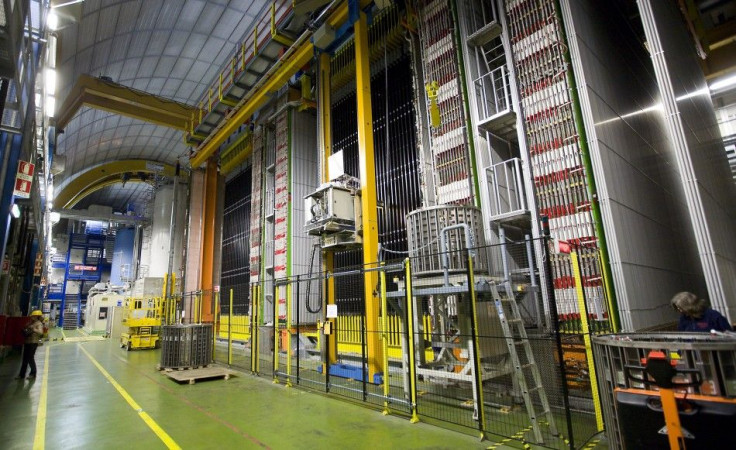Speed of Light Error at CERN? Not So Fast, Neutrinos

Last year, an underground experiment in Europe completely upended our assumptions about the universe.
That was in September, when scientists working on the Oscillation Project with Emulsion-tRacking Apparatus (OPERA) reported evidence of fundamental particles travelling faster than the speed of light. They had sent neutrinos, electrically neutral fundamental particles that travel easily through matter, from CERN'S laboratories in Geneva to a receiver in Gran Sasso, Italy. After repeated send-offs, the particles continued to arrive a fraction of a second earlier than they should have.
Their measured speed trumped the cosmological constant, and that's a big deal. If these neutrinos -- or anything else, ever -- could be unequivocally proven to exceed the speed of light, then Einstein's most elegant equation, E = mc², would be wrong. Physicists everywhere were forced to consider scrapping their long-held convictions about the nature of time and space. Of course, there were plenty of skeptics.
Today, those skeptics are feeling smug.
New findings have shed doubt on the results of the September experiment, and scientists are now investigating whether all of the hullabaloo resulted from a simple case of faulty wiring.
On Thursday, CERN reported its findings in a statement on its Web site. The OPERA collaboration has informed its funding agencies and host laboratories that it has identified two possible effects that could have an influence on its neutrino timing measurement, they wrote. The first problem involved flaws in an oscillator that generated time stamps. The second was a faulty cable connection between the master clock and an external GPS signal.
Interestingly, these two potential liabilities would have opposite effects. If the oscillator flaw affected results, then the neutrinos' actual speed was slower than OPERA'S initial measurement. But if the cable was to blame, the speed could actually be even faster than originally thought.
So the reported defects don't necessarily disprove the original results; they just shed some serious doubts. In other words, more investigations are in order.
But even before all this, scientists were already setting up repeat experiments to verify OPERA's findings. Facilities called Icarus, Forexino and LVD, all in Gran Sasso, are all on the case. So is a Japanese lab called T2K. And in the United States, the Main Injector Neutrino Oscillation Search (MINOS) experiment is sending neutrinos from Fermilab in Batavia, Ill., to a receiver in Soudan, Minn. For these scientific teams, OPERA's reported flaws should not be factors.
The schedule for MINOS improvements is the same, said a Fermilab spokeswoman via e-mail. We hope to have a result from MINOS in March, providing the first cross-check of the OPERA result by another experiment.
In fact, MINOS has already conducted experiments to measure the speed of neutrinos. In 2007, it measured particles exceeding the speed of light by 1.8 sigma. But that minuscule amount was not considered statistically significant, and the experiment didn't make headlines. Now, the team has upgraded its equipment to increase accuracy and reliability. The scientists look forward to releasing their findings next month.
Meanwhile, the OPERA team continues to inspect and revise its own findings with the help of the international scientific community.
© Copyright IBTimes 2024. All rights reserved.












